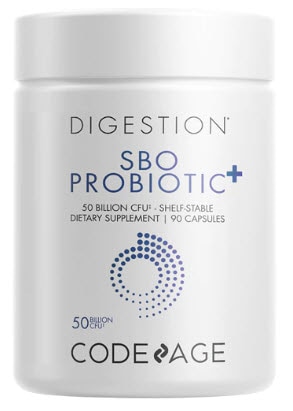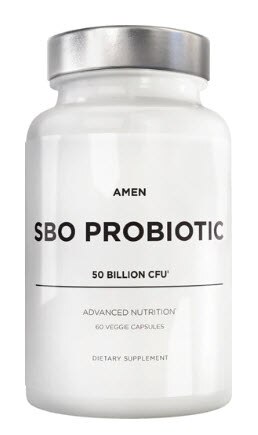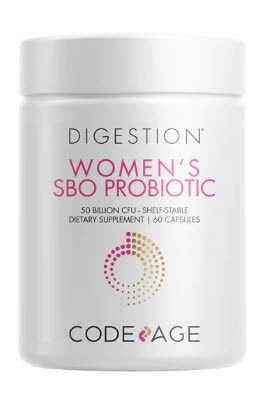Gut health is a popular topic for a good reason; increasing evidence connects the gut to several other areas of health, including mood, cognition, digestive issues, skin conditions, fatigue, sleep, food intolerance and more.
The human gut is packed with living organisms, including bacteria and yeasts that work tirelessly to protect you from pathogens, tame inflammation, boost immunity, harvest energy from food and strengthen the gut. These living organisms are termed gut microbiota.
 The soil-gut connection
The soil-gut connection
While gut health is a complex issue, science shows there are ways you can bolster it (and habits that can damage it). One emerging area of research explores the connection between organisms found in soil and those found in the human gut. The microbiota in soil and the human intestinal microbiome are linked, having formed during evolution and continuing to develop.
The same number of active microorganisms are found in soil and the human gut, but human gut biodiversity has been shrinking and is only 10% of that found in soil. This means there are fewer diverse types of microorganisms in your gut, and that number is declining.
One reason for this is the cleanliness of society today, with less soil contact, more extreme hygiene practices and antibiotic use. Low fiber processed foods are also a culprit leading to the decline of beneficial organisms. What’s more, soil biodiversity has also been reduced with modern farming practices such as the use of agrochemicals and fields filled with single crops.
Scientists believe these effects may combine to create health problems related to the human intestinal microbiome. Children grow up without exposure to these immune-boosting diverse bacteria, which may contribute to increased allergies, immune disorders and more.
While agricultural reform is out of the hands of most, there are ways you can boost the diversity of your gut-friendly organisms.
What are SBO probiotics, and how are they different?
Soil-based organism probiotics are supplements designed to provide the diversity of microorganisms found in soil. They are considered more hearty than food-based probiotics, without the need for refrigeration and an increased ability to withstand the stomach’s acidic environment, potentially allowing them to better travel to the intestines where they do their health-promoting work.
Unlike traditional probiotic supplements Lactobacillus and Bifidobacterium, most SBO probiotics are spore-forming, meaning they have a protective layer that withstands heat, stomach acid, and most antibiotic drugs. It is for this reason that several antibiotic drugs are formed from SBOs.
While consuming soil-based organisms might seem strange, the reality is humans have done so throughout evolutionary history, using soil to supplement diets otherwise lacking nutrients; a practice called geophagy. Soil has always been present on plants and used to grow and nourish the foods you eat. SBO probiotics in supplement form are relatively new and are still being researched.
Are SBO probiotics sustainable?
SBO probiotics are vegan and do not require refrigeration. They are more shelf-stable and have a longer shelf life than other forms of probiotics. This means less potential waste and less energy used to store them.
What to look for in SBO probiotics
When choosing an SBO probiotic supplement, there are a few things to look for to ensure quality.
Regulated manufacturing
Firstly, look for evidence that the supplement has been manufactured in a cGMP-certified facility. This means it is made in an FDA-regulated facility, which must adhere to the CGMP regulations and “assures the identity, strength, quality, and purity of drug products by requiring that manufacturers of medications adequately control manufacturing operations,” according to the FDA.
Addition of prebiotics
Prebiotics are the energy source your gut microbiota feed on in order to thrive and multiply. They produce short-chain fatty acids released into the bloodstream, with beneficial effects on your gastro-intestinal tract and other organs.
Fructo-oligosaccharides and galacto-oligosaccharides are two such prebiotics found in food in small amounts. These plant compounds are non-digestible and ferment in the gut with the help of microorganisms that feed on them.
So, similar to fermented foods, which contain probiotics due to bacteria feeding on them, the fermentation process and proliferation of good bacteria and other microorganisms happens right in your gut. Choosing an SBO probiotic that contains prebiotics is ideal because it increases the chances your newly introduced microorganisms will flourish.
Colony forming units
The number of colony-forming units (CFUs) in a probiotic determines how many bacterial cells are found in a sample. It is one way of indicating the quality of your supplement. The higher CFU, the more microorganisms per serving you will get.
On average, probiotics’ CFU count ranges from 1 and 10 Billion CFUs per serving, with some brands offering high counts of over 100 Billion CFUs. Scientists believe you should choose a probiotic with a minimum of 1 billion CFUs.
While the amount of CFUs is important, it’s not the only quality measure. You should also look for an SBO probiotic with multiple strains since strain diversity is one vital aspect of gut health. Each strain has the potential to work in different ways and may affect your health differently; variety is an excellent way to ensure you get the most benefit from your supplement.
Dietary considerations
Lastly, you may wish to choose an SBO probiotic that adheres to your specific dietary needs. For instance, if you are vegan, choosing a vegan-friendly supplement is essential. Other dietary considerations include GMOs, gluten, dairy and soy.
Typically, a supplement will list whether it is crafted considering these or other dietary needs, so check carefully to see if your choice suits your lifestyle and requirements.
Final thoughts
While more research is needed to confirm the potential benefits of SBO probiotics, they are generally considered safe and effective. If you need a probiotic for traveling or want to ensure the microorganisms you’re taking survive the journey to your intestines, soil-based probiotics are worth trying. If you have any health concerns or questions about gut health or SBOs, seek the guidance of your healthcare provider.



